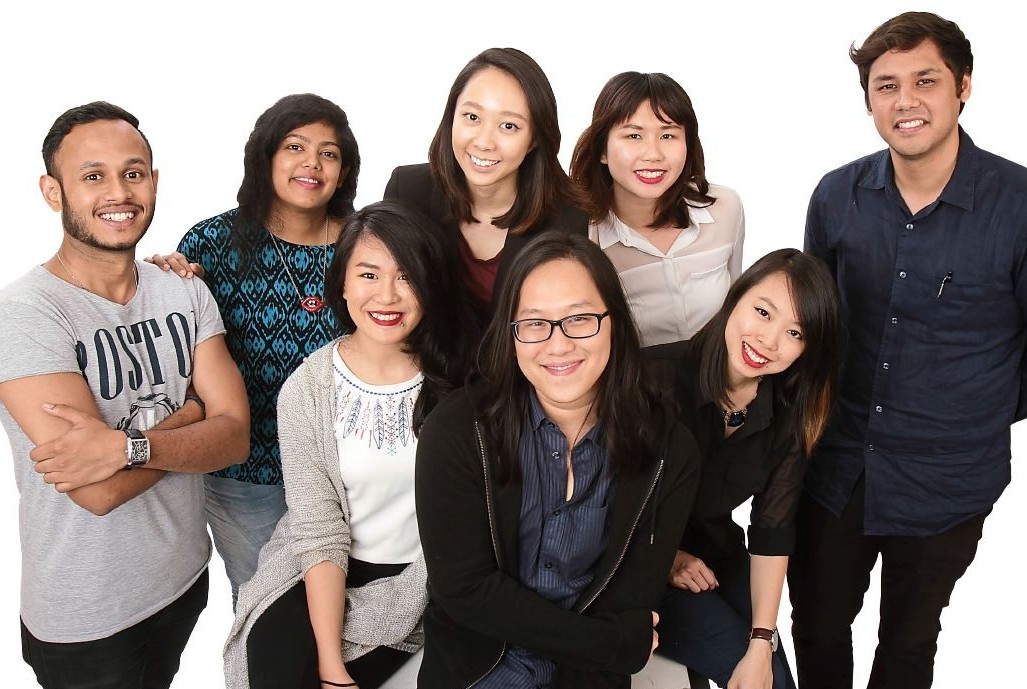MY career at R.AGE has been dominated by the pursuit of inspiring true stories, but it all started with a lie.
In early 2008, I met R.AGE editors Ivy Soon and Tan Ju-Eng for the first time at a job interview. I told them being a journalist was all I wanted to do. I even wrote a very impassioned story about my journalistic ambitions as part of the screening test.
It was mostly bulls***. Good bulls***, cos they ended up hiring me, but still. I hadn’t planned on being a journalist for more than six months. My masters degree applications had been sent out, and I was gonna go into finance.
In my head, I could already hear myself saying, “so long, suckers!”
And yet here I am, almost eight years later, editor of R.AGE and a huge proponent of the style of journalism for young people my predecessors had established.
During R.AGE’s initial years, we had a lot of detractors. Whenever I’d tell someone I was with The Star’s youth section, they’d always laugh and say young people don’t care about the news. They’d always say, “focus on music and entertainment – young people love that”.
But my editors at the time, Ivy and Niki Cheong, stuck to their guns. They kept us churning out heavy feature stories on politics, social issues, student rights, and so on – even when the reporters didn’t always enjoy it.
These were the toughest stories to write, obviously. The kinds of issues we addressed, from transgender rights to the importance of sex education, took a whole lot of research and legwork, and they divided opinion the most – among the few who’d actually read them through and through anyway.
It was all very noble, but as a cynic, I always thought – just give the readers what they want! What’s the point of writing all this if so few people are reading it?
In hindsight, our editors were right all along. Young Malaysians have always cared about social issues – they just never had a platform they were comfortable with to learn about and discuss them. They weren’t being empowered to make a difference.
As we slowly built our identity and audience, we could see more and more young Malaysians responding positively to what we were doing.
I was getting emails from people telling me how our stories were making a difference, especially with marginalised communities like young people living in urban poverty, or people living with HIV.
Until today, one of the favourite stories I’ve ever written is on young adults with learning disabilities in Malaysia, and how inadequate our country’s system is in preparing them for adulthood. The response from the community made the weeks I spent pursuing that story totally worth it.
By the time my six months was up and it was time to decide whether to leave the country for my masters, I was in love with the job. I told myself, “do it for another year”. Yeah, right.
Not long after, social media took off in Malaysia in a big way, and it took our game to the next level.
Again, we had to prove people wrong. The common joke back then was that young people only used social media to tell everyone what they had for lunch. We weren’t buying it.
We took our brand of youth journalism to Twitter, Facebook, Instagram and pretty much every new platform that came up.
It allowed our journalists to send out news to our followers faster than any of our competitors at the time. I remember live tweeting from the slums of India (using a SMS Twitter gateway – anyone remember those?) while other journalists were waiting to get back to the hotel to file their stories. Everyone does it now, but back then, we were streets ahead.
Social media also allowed our readers to engage us directly, to add their unique perspectives to our stories. Our #RAGEchat Twitter Q&A series was almost like a full feature story being written live on our timeline, with young people sharing their stories and expert guests chiming in.
And that’s when we started getting international recognition. We’ve won five international awards since 2012, as well as a few national awards.
Today, R.AGE is raring to prove everyone wrong again with a talented new team, and we know it won’t be the last time we’ll have to do it. Young people will always be misunderstood, because they have the courage to do things differently. But we hope to be there to do it with them, every step of the way.







Leave a reply